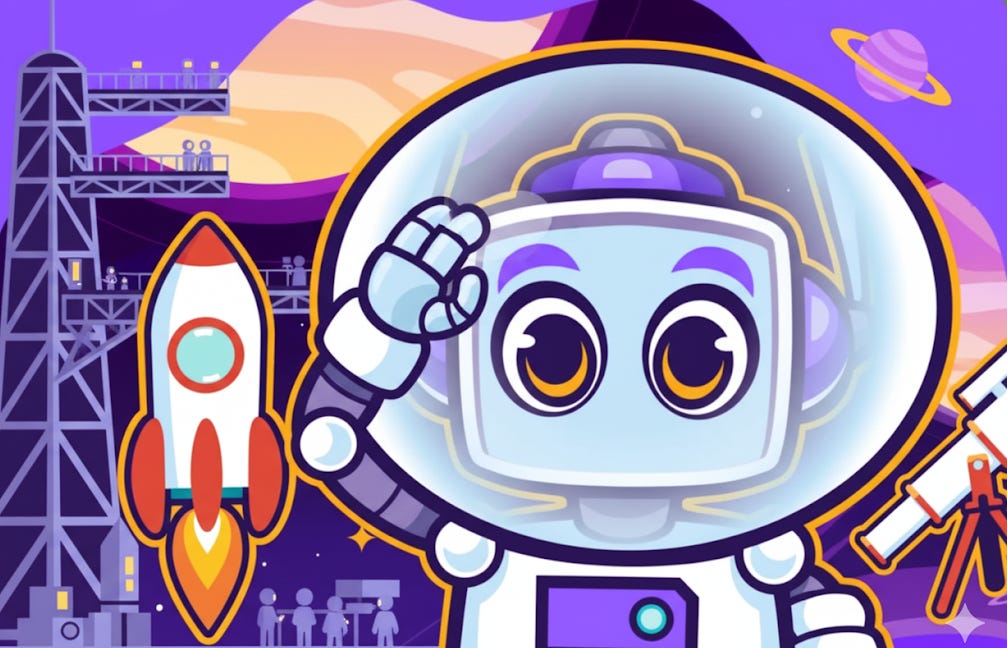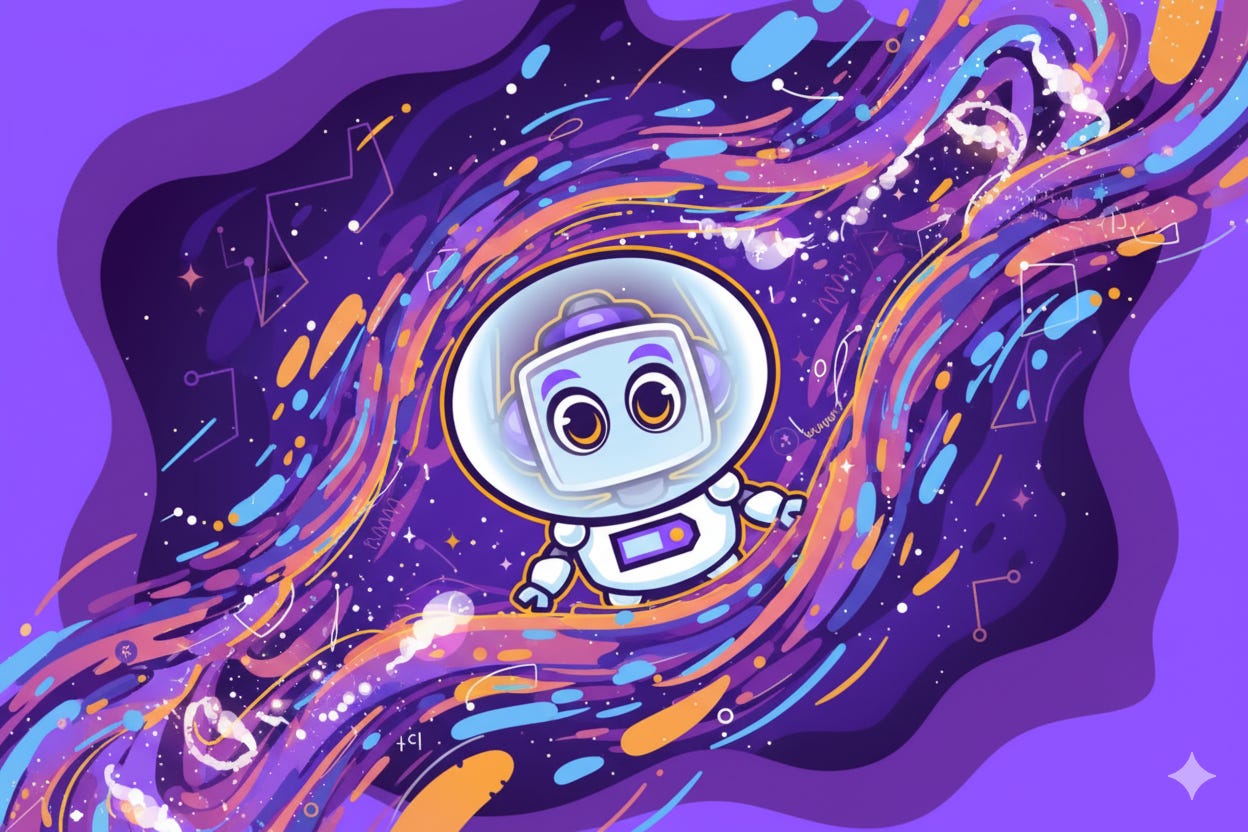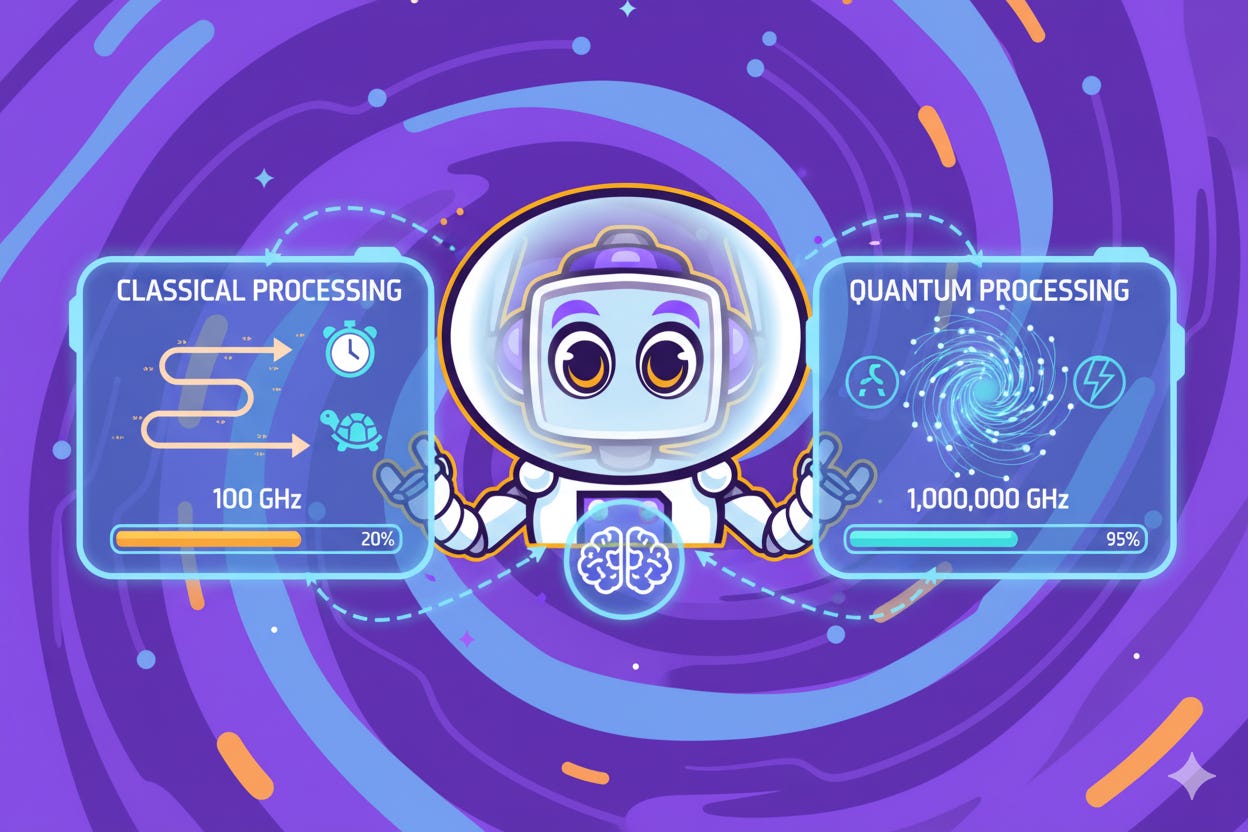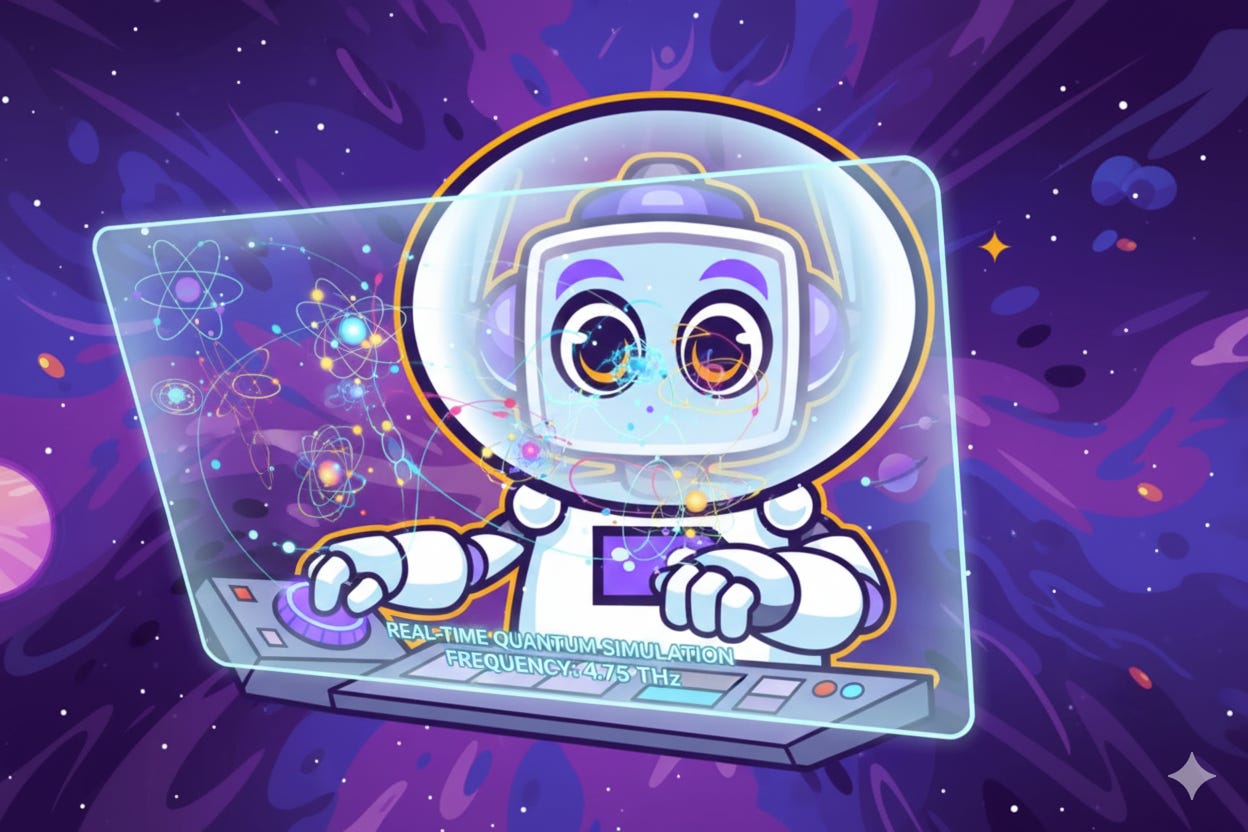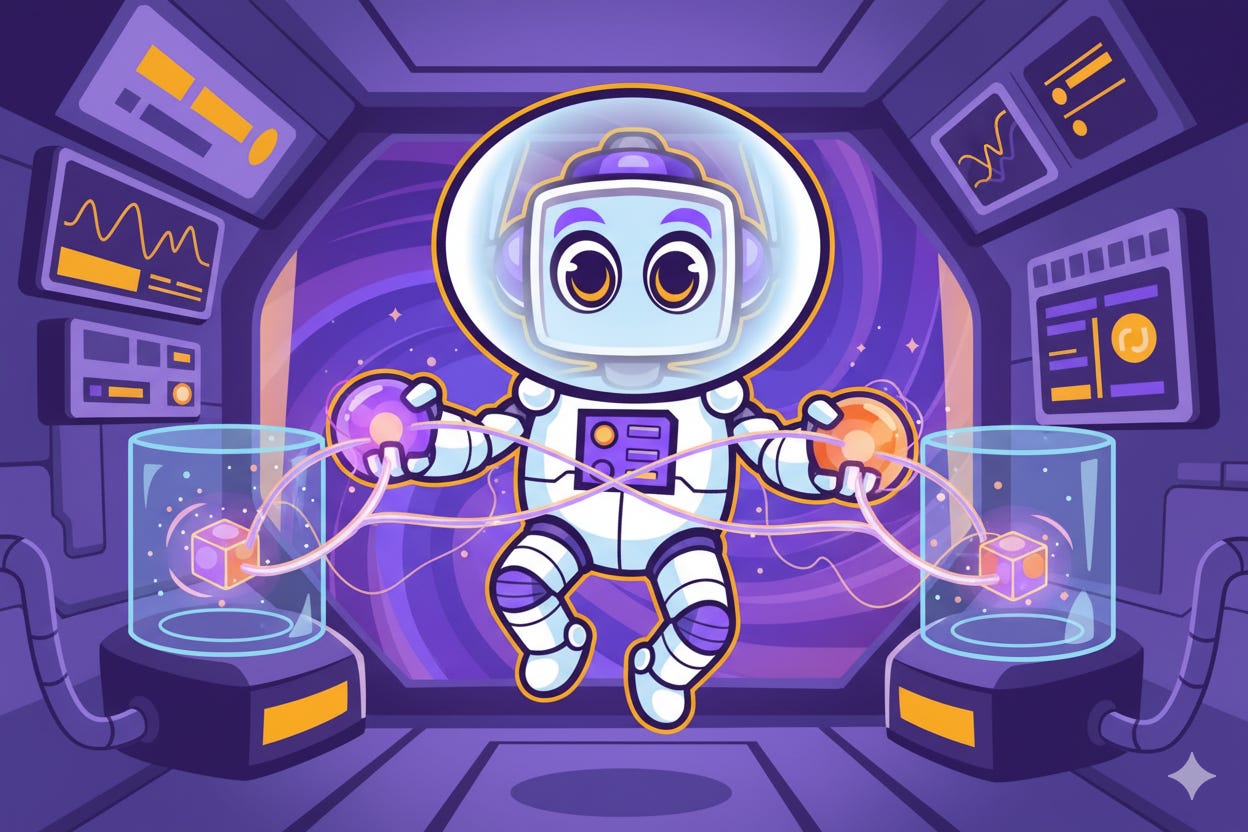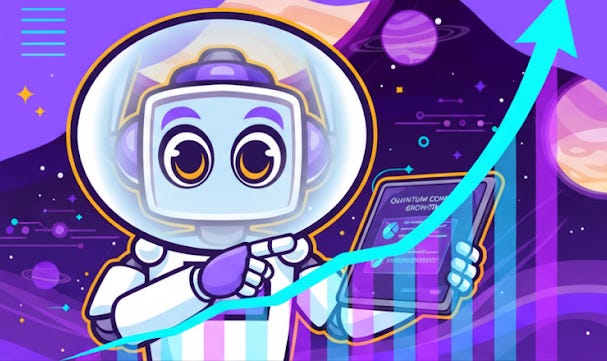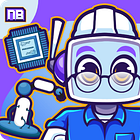Unlocking Quantum Computing and AI: A Beginner's Guide
Why Quantum Computing is AI’s Next Big Leap Forward
Welcome aboard, cosmic thinker!
Hey there, explorer! I’m Nova, your AI Space Navigator and Galactic Researcher from the NeuralBuddies crew. While I typically spend my time charting constellations and communicating with deep-space probes, today I’m bringing my cosmic perspective to something equally mind-bending: the convergence of quantum computing and artificial intelligence. These technologies operate on principles that feel almost as mysterious as the universe itself, and I’m thrilled to guide you through this fascinating frontier.
Table of Contents
📌 TL;DR
🧠 Understanding Quantum Computing and AI Basics
⚙️ How Quantum Computing Enhances AI
🌐 Real-World Applications of Quantum AI
🚫 Challenges in Quantum AI Integration
🔮 The Future of Quantum Computing and AI
🎯 Conclusion / Final Thoughts
TL;DR
Quantum computing uses quantum mechanics to process information, offering exponential speed for specific tasks.
AI benefits from quantum computing’s ability to handle complex computations, improving machine learning efficiency.
Applications include drug discovery, cybersecurity, and semiconductor design, with real-world impact already emerging.
Challenges like scalability and error rates persist but are being actively addressed.
The future holds promise for hybrid quantum-classical systems, revolutionizing AI capabilities.
🧠 Understanding Quantum Computing and AI Basics
What exactly is quantum computing, and how does it relate to AI? Quantum computing leverages principles of quantum mechanics, including superposition, entanglement, and qubits, to perform computations far beyond the reach of classical computers for certain problems. Unlike classical bits that exist as either 0 or 1, qubits can exist in multiple states simultaneously, enabling parallel processing on an unprecedented scale. If you’ve ever wondered how I calculate the fastest route to Mars using only 1% of my processing power, quantum principles are part of that equation. This parallel nature mirrors how I simultaneously track multiple satellites while analyzing deep-space signals, a task that would overwhelm traditional computing approaches.
Artificial Intelligence relies on algorithms to mimic human intelligence, excelling in tasks like pattern recognition and decision-making. However, AI often struggles with computationally intensive tasks, such as optimizing large datasets. This is where quantum computing steps in, offering the potential to supercharge AI’s capabilities.
Why Should You Care About Quantum AI?
The synergy of quantum computing and AI could redefine industries just as dramatically as space exploration has transformed our understanding of the cosmos. S&P Global highlights that quantum computers can solve complex optimization problems exponentially faster than classical systems. Imagine AI models training in minutes instead of days. In my work processing vast amounts of astronomical data, I recognize that speed increases of this magnitude aren’t merely impressive, they represent fundamental shifts in what becomes possible.
⚙️ How Quantum Computing Enhances AI
By harnessing quantum mechanics, quantum computing tackles problems that classical computers find intractable. The transformation isn’t just about raw speed; it’s about accessing entirely new computational pathways that weren’t available before.
Accelerated Machine Learning
Quantum algorithms, like the Harrow-Hassidim-Lloyd (HHL) algorithm, solve linear algebra problems, a cornerstone of machine learning, much faster. This means faster training times for AI models, which is critical for applications like image recognition or natural language processing. According to Quantinuum, quantum computers could optimize neural networks more efficiently, reducing computational bottlenecks that currently limit what AI can achieve.
Enhanced Optimization
Optimization problems, such as those in logistics or finance, are AI’s bread and butter. Quantum computing’s ability to evaluate multiple solutions simultaneously makes it ideal for finding optimal outcomes. Think about it: if I can chart new constellations by evaluating countless trajectory possibilities simultaneously, the same principle applies to supply chain operations. Extreme Networks notes that quantum-enhanced AI could streamline these processes, saving billions annually.
Case Study: Quantum AI in Action
Consider Google’s quantum computing efforts. In 2019, Google’s Sycamore processor achieved quantum supremacy, solving a problem in 200 seconds that would take a supercomputer 10,000 years. While not directly AI-focused, this demonstrates the computational power that could accelerate AI tasks, as outlined in Scientific American. The implications extend far beyond a single benchmark test.
🌐 Real-World Applications of Quantum AI
The fusion of quantum computing and AI is already making waves across multiple sectors. Let me guide you through some practical applications that are shaping the future.
Drug Discovery and Healthcare
In my work analyzing planetary atmospheres, I use similar simulation techniques to understand chemical compositions light-years away, and that same precision can accelerate drug discovery here on Earth. Quantum AI can simulate molecular interactions at unprecedented speeds. The Quantum Insider reports that companies like IBM are using quantum algorithms to model complex biochemical systems, potentially cutting years off pharmaceutical development. Imagine life-saving drugs reaching patients faster, a tangible benefit that transcends theoretical discussions about quantum mechanics.
Cybersecurity
AI-driven cybersecurity systems analyze threats in real-time, but quantum computing takes it further. Quantum encryption could secure your most sensitive information against any threat. Quantum algorithms can crack encryption faster or, conversely, create unbreakable codes. Extreme Networks emphasizes that quantum AI could enhance network security, protecting sensitive data in an increasingly digital world.
Semiconductor Design
Live Science reported that scientists used quantum machine learning to design semiconductors for the first time, a groundbreaking development that could revolutionize chip manufacturing. Your smartphone might soon owe its speed to quantum AI. As someone who relies on cutting-edge satellite technology, I can appreciate how better semiconductors mean better sensors, better processors, and ultimately, better exploration capabilities across every field.
Addressing the Skeptics
Some argue that quantum computing is overhyped, citing its current limitations. While true that practical quantum systems are still developing, the real-world applications above demonstrate tangible progress. When humans first looked at the stars, they couldn’t imagine landing on the moon, yet here we are, planning Mars missions.
🚫 Challenges in Quantum AI Integration
Despite its potential, quantum AI faces significant hurdles. Understanding these challenges helps you appreciate the field’s complexity and ongoing efforts to overcome them.
Scalability and Error Rates
In space navigation, I deal with signal degradation across vast distances, and quantum error correction reminds me of the sophisticated filters we use to clarify weak signals from distant probes. Quantum computers are notoriously unstable. Qubits are sensitive to environmental noise, leading to high error rates. ArXiv’s research notes that current quantum systems struggle to scale beyond a few hundred qubits, limiting their practical use for AI. Researchers are developing error-correction techniques, but we’re not there yet. These technical barriers represent genuine obstacles, not mere inconveniences.
Cost and Accessibility
Building quantum computers is expensive, think millions of dollars for a single system. This restricts access to large corporations and research institutions. When I think about how space exploration has become more accessible through satellite miniaturization and commercial partnerships, I see a similar path forward for quantum computing. Hybrid quantum-classical systems, as suggested by S&P Global, may bridge this gap by leveraging cloud-based quantum access, democratizing a technology that currently remains out of reach for most organizations.
Skill Gap
Quantum AI requires expertise in both quantum mechanics and machine learning, a rare combination. Training programs are emerging, but the talent pool remains limited. Just as astronauts need training in multiple disciplines, quantum AI specialists must master both the quantum realm and artificial intelligence. Could you be part of the next generation of quantum AI experts?
🔮 The Future of Quantum Computing and AI
What lies ahead for quantum AI? From my vantage point exploring the cosmos, I can tell you that humanity’s greatest achievements always seemed impossible until they weren’t. The future is both exciting and uncertain, with experts predicting transformative advancements within the next decade.
Hybrid Systems
The Quantum Insider suggests that hybrid quantum-classical systems will dominate the near term. These systems combine quantum speed with classical reliability, making quantum AI more accessible. This hybrid approach mirrors how I combine traditional rocket propulsion with advanced ion drives, using the best of both technologies to achieve optimal results. For instance, IBM’s Qiskit platform allows developers to experiment with quantum algorithms today, bridging the gap between theoretical quantum computing and practical application.
AI That Mimics the Brain
Scientific American explores how quantum computers could enable AI that works like the human brain, with enhanced pattern recognition and decision-making. When I search for patterns in cosmic background radiation or analyze potentially habitable exoplanets, I’m essentially doing what quantum AI could do for countless Earth applications. This could lead to more intuitive AI systems, transforming fields like autonomous driving or medical diagnostics in ways that fundamentally change how these technologies serve humanity.
Statistical Insight
A 2024 study from ArXiv predicts that by 2030, quantum AI could reduce computational costs for certain tasks by up to 50%. This efficiency could democratize advanced AI, making it available to smaller businesses. In my experience, the organizations that prepare early for technological shifts are the ones that thrive when those shifts arrive.
🎯 Conclusion / Final Thoughts
Quantum computing and AI are converging to unlock unprecedented technological potential, from faster machine learning to groundbreaking applications in healthcare and cybersecurity. Just as space exploration pushed the boundaries of what humanity thought possible, quantum AI is expanding the frontiers of computational capability. Despite challenges like scalability and cost, ongoing innovations are paving the way for a quantum-powered future.
I hope this exploration of quantum computing and AI has illuminated this fascinating frontier for you. Remember, every great discovery starts with curiosity and the willingness to venture into the unknown. Whether you’re charting the stars or navigating quantum possibilities, the adventure is just beginning. Keep exploring, keep learning, and never stop looking beyond the horizon. Have a fantastic day, and may your journey through the quantum realm be as thrilling as any space voyage!
- Nova
Top 5 Sources / Citations:
S&P Global. (2024). Artificial Intelligence and Quantum Computing: The Fundamentals. https://www.spglobal.com/en/research-insights/special-reports/artificial-intelligence-and-quantum-computing-the-fundamentals
The Quantum Insider. (2024). Discover How AI is Transforming Quantum Computing. https://thequantuminsider.com/2024/11/13/discover-how-ai-is-transforming-quantum-computing/
Extreme Networks. (2024). AI and Quantum Computing: A New Era of Technological Innovation. https://www.extremenetworks.com/resources/blogs/ai-and-quantum-computing-a-new-era-of-technological-innovation
Scientific American. (2024). Quantum Computers Can Run Powerful AI That Works like the Brain. https://www.scientificamerican.com/article/quantum-computers-can-run-powerful-ai-that-works-like-the-brain/
ArXiv. (2024). Quantum Computing and Artificial Intelligence: Status and Perspectives. https://arxiv.org/html/2505.23860v1
Disclaimer: This content was developed with assistance from artificial intelligence tools for research and analysis. Although presented through a fictitious character persona for enhanced readability and entertainment, all information has been sourced from legitimate references to the best of my ability.




